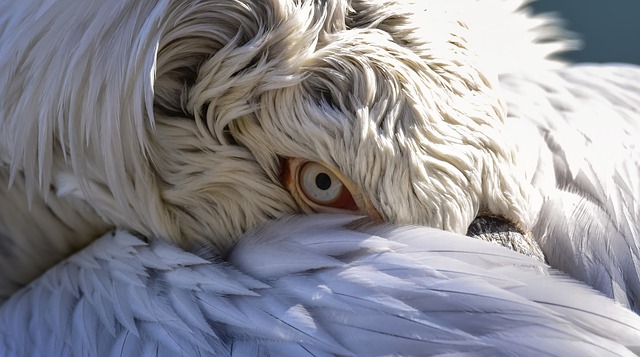American white pelicans breed in Canada and the upper Midwest, and they typically winter near the Gulf of Mexico and coastal Southern California. However, more of these enormous wetland birds are wintering in Arizona because of the state’s prime living conditions.
Dropping water levels in their natural habitats make the pelicans easy prey for predators, so the birds have found refuge when they migrate south for the winter, settling in the Sonoran Desert’s man-made lakes for imported fish and balmy weather.
“Right now when these birds nest at the Great Salt Lake, their nesting island used to have water all around it and it was free of any predators like coyotes,” said Tice Supplee, director of bird conservation at Audubon Arizona. “Well, now it’s connected to the mainland, and coyotes can come out to where they nest.”
White pelicans are dependent on wetlands for survival. The carnivores forage in shallow, open water, and when they’re vulnerable to hunters, their migration course shifts. Fortunately, Arizona’s reservoirs, community lakes and ponds have an assortment of imported fish to feast upon.
“The fish here (in Arizona) are not native,” Supplee said. “They’re tilapia and were put in here to manage the weeds. The pelicans have found great winter restaurants.”
White pelicans aren’t the only breed of pelicans seen in Arizona. Brown pelicans, which dive-bomb to feed and tend to stay near coastal waters, are known to head to Arizona to escape coastal storms, but wildlife specialists historically had them transported out of the state because of lack of suitable habitats. But with the abundance of large lakes, ponds and reservoirs across the state, brown and white pelicans are staying longer during our cooler winter months.
“North American pelicans are very different from your brown pelican, which are on the coasts,” said Peggy Coleman of Birding-Arizona, a bird photography and advocacy group. “North American pelicans are more inland on lakes and ponds and whatnot.”
With central Arizona a magnet for pelicans, birders and nature lovers have more chances to photograph these unexpected guests.
Story by Melanie Porter and Kennedy Wilkerson, Cronkite News





